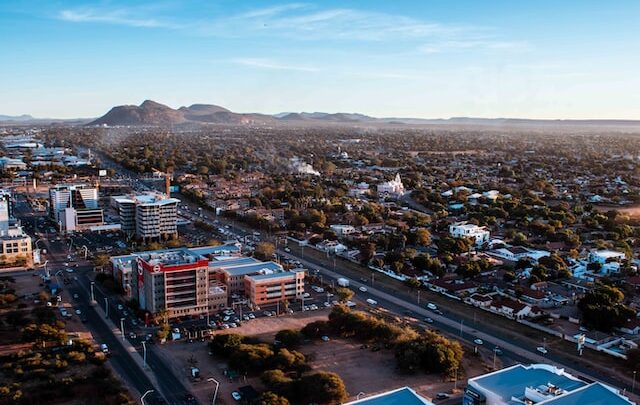
Botswana is one of Africa’s most remarkable countries, known for its stunning landscapes, rich cultural heritage, and thriving wildlife conservation efforts.
From the vast Kalahari Desert to the vibrant Okavango Delta, Botswana offers a unique blend of natural beauty and cultural experiences.
This article explores Botswana’s history, cultural practices, and travel highlights, providing an in-depth guide to this beautiful Southern African nation.
Table of Contents
- Introduction to Botswana
- Fascinating Facts about Botswana
- History of Botswana
- Culture and Traditions in Botswana
- Traditional Music and Dance
- Languages of Botswana
- Festivals and Celebrations
- Wildlife and Conservation Efforts in Botswana
- Travel Destinations in Botswana
- Okavango Delta
- Chobe National Park
- Makgadikgadi Salt Pans
- Kalahari Desert
- Botswana Travel Tips
- Conclusion: Experiencing Botswana
Introduction to Botswana
Located in Southern Africa, Botswana is a landlocked country bordered by Namibia, South Africa, and Zimbabwe.
It is one of Africa’s most politically stable nations, celebrated for its successful conservation initiatives and high standard of living relative to many other African countries.
Botswana’s landscape is diverse, ranging from wetlands and rivers to deserts and grasslands, making it a dream destination for nature lovers and adventure travellers.
Fascinating Facts about Botswana
- Capital: Gaborone
- Official Language: English (Setswana is widely spoken)
- Currency: Pula (BWP)
- Population: Approximately 2.3 million people
- Famous For: Okavango Delta, diamond mining, and rich wildlife
- UNESCO Sites: Tsodilo Hills and Okavango Delta
History of Botswana
Botswana’s history is deeply rooted in the traditions of the Tswana people, who were the first major ethnic group to settle in the region.
The country was once a British protectorate known as Bechuanaland until it gained independence in 1966. Since then, Botswana has become one of Africa’s success stories, with a stable democracy, steady economic growth, and a commitment to wildlife conservation.
Its diamond mining industry managed through partnerships with international companies, has contributed significantly to the nation’s economic prosperity.
Also Read: Benin Republic Facts, History, Culture & Travel
Culture and Traditions in Botswana
Botswana’s culture is a blend of various ethnic groups, including the Tswana, Kalanga, and San people. Their customs, music, and art reflect a strong connection to nature, community, and storytelling.
Traditional Music and Dance
Music and dance play a central role in Botswanan culture, used to celebrate everything from weddings to traditional festivals. The Tswana people perform energetic dances like borankana and setapa, accompanied by traditional instruments like drums, marimbas, and hand claps.
Languages of Botswana
While English is the official language, Setswana is the most widely spoken language, and each ethnic group has its dialects and languages. Setswana reflects the people’s connection to their traditions, history, and folklore.
Festivals and Celebrations
Botswana hosts several festivals celebrating its heritage and arts, including the Maitisong Festival in Gaborone, which showcases local music, drama, and dance. The Khawa Dune Challenge and Cultural Festival also bring communities together with activities like camel races, quad biking, and traditional performances.
Wildlife and Conservation Efforts in Botswana
Botswana is known worldwide for its dedication to wildlife conservation. Approximately 40% of the country’s land is designated for parks, reserves, and wildlife management areas.
The government’s anti-poaching efforts and sustainable tourism policies have made Botswana a haven for iconic African wildlife, including elephants, lions, and rhinos.
Botswana’s approach to conservation, particularly in the Okavango Delta and Chobe National Park, is admired globally. The country’s commitment to ecotourism helps protect these ecosystems while supporting local communities.
Also Read: 10 Fun Facts About the Kalahari Desert in Botswana, Namibia and South Africa
Travel Destinations in Botswana
Okavango Delta
The Okavango Delta, a UNESCO World Heritage Site, is one of the world’s most stunning inland deltas, offering diverse wildlife experiences and pristine landscapes.
Visitors can explore traditional mokoro (dugout canoe) safaris, spotting hippos, elephants, and a variety of bird species.
Chobe National Park
Chobe National Park is famous for its large elephant population and its beautiful scenery along the Chobe River. Safari tours and boat cruises allow travellers to see elephants, buffalo, and crocodiles up close, making it a must-visit for wildlife enthusiasts.
Makgadikgadi Salt Pans
The Makgadikgadi Salt Pans, one of the largest salt flats in the world, offers a surreal landscape for visitors. During the wet season, the pans transform into wetlands, attracting flamingos and other migratory birds.
The dry season allows for quad biking and walking safaris to see the desert’s unique flora and fauna.
Kalahari Desert
Covering much of Botswana, the Kalahari Desert is home to the San people and offers unique cultural experiences, where travellers can learn about the San’s traditional hunting, gathering, and survival skills. The Kalahari’s Central Game Reserve also provides a more remote and intimate wildlife experience.
Botswana Travel Tips
- Best Time to Visit: The dry season from May to October is ideal for wildlife viewing, while November to April offers lush landscapes and birdwatching.
- Currency: Botswana’s Pula (BWP) is the local currency, and it’s advisable to carry cash for small purchases in remote areas.
- Health and Safety: Malaria is a risk in some areas, so it’s essential to take preventive measures. Also, Botswana is a relatively safe country, but basic travel precautions are always recommended.
- Respect Local Culture: Learning a few phrases in Setswana and understanding local customs enhances the travel experience and shows respect for Botswana’s culture.
Conclusion: Experiencing Botswana
Botswana offers a rare combination of natural beauty, cultural richness, and a commitment to conservation.
Whether exploring the vast plains of the Kalahari, drifting through the waterways of the Okavango Delta, or engaging with the warm and resilient people, Botswana promises an unforgettable experience.
It is a destination where adventure, wildlife, and culture converge, making it one of Africa’s most cherished gems.
References:





